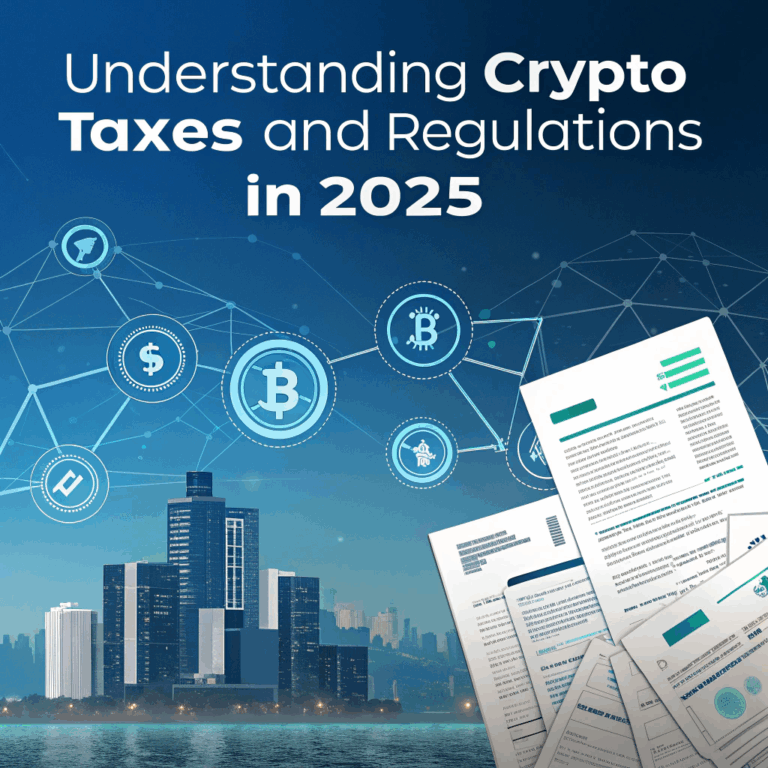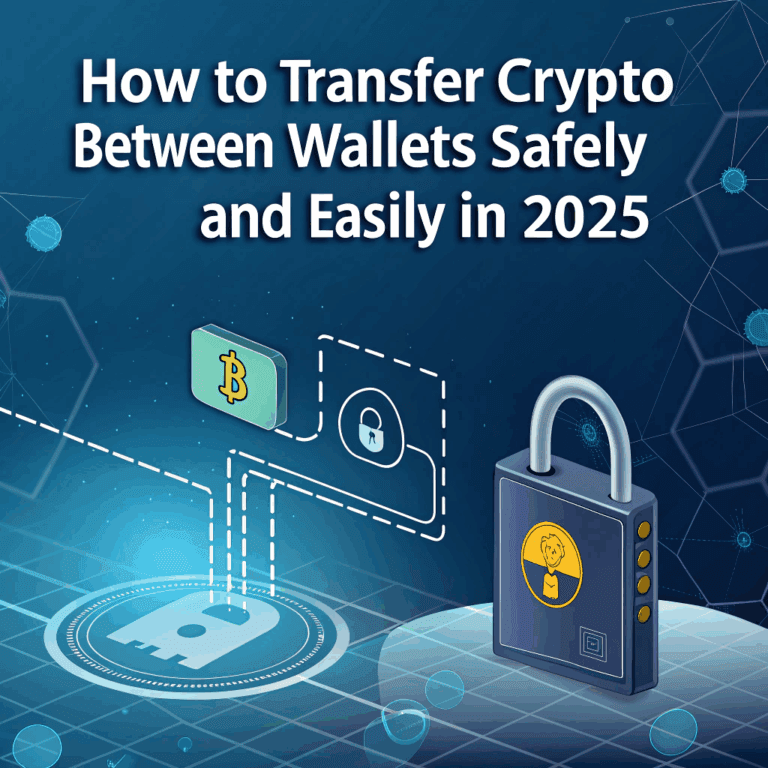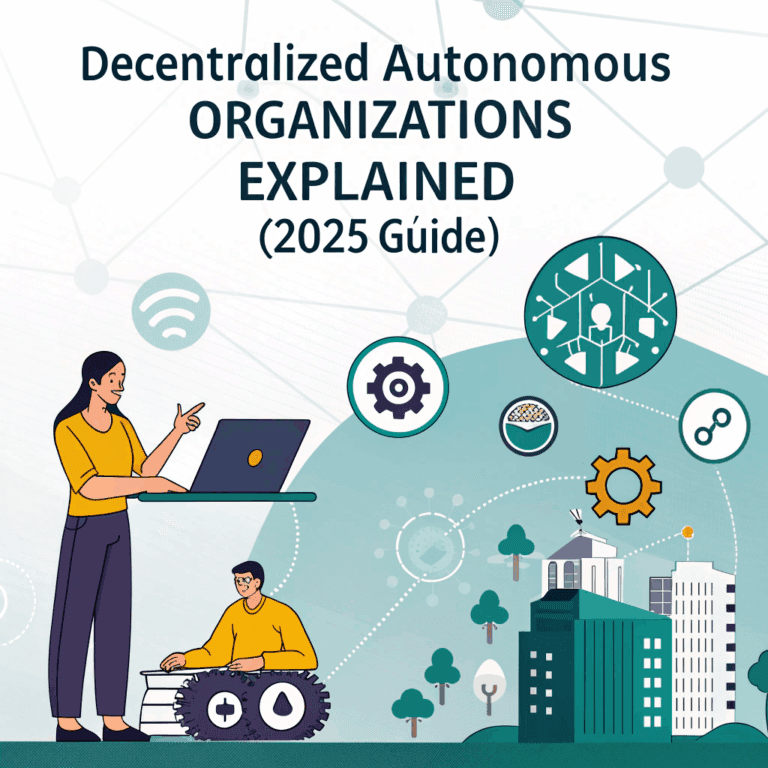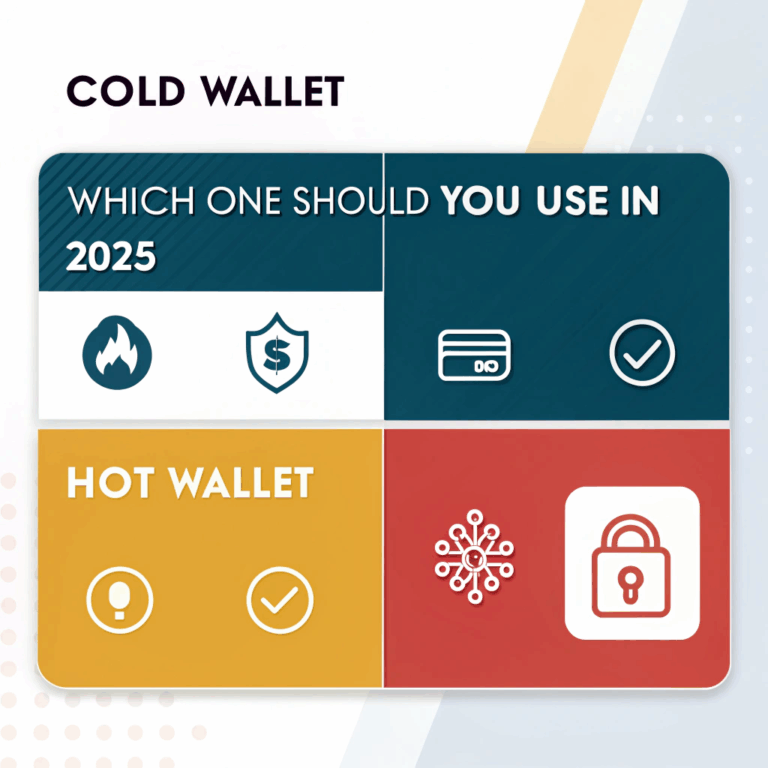How Crypto Mining Works – Explained for Beginners (2025 Guide)
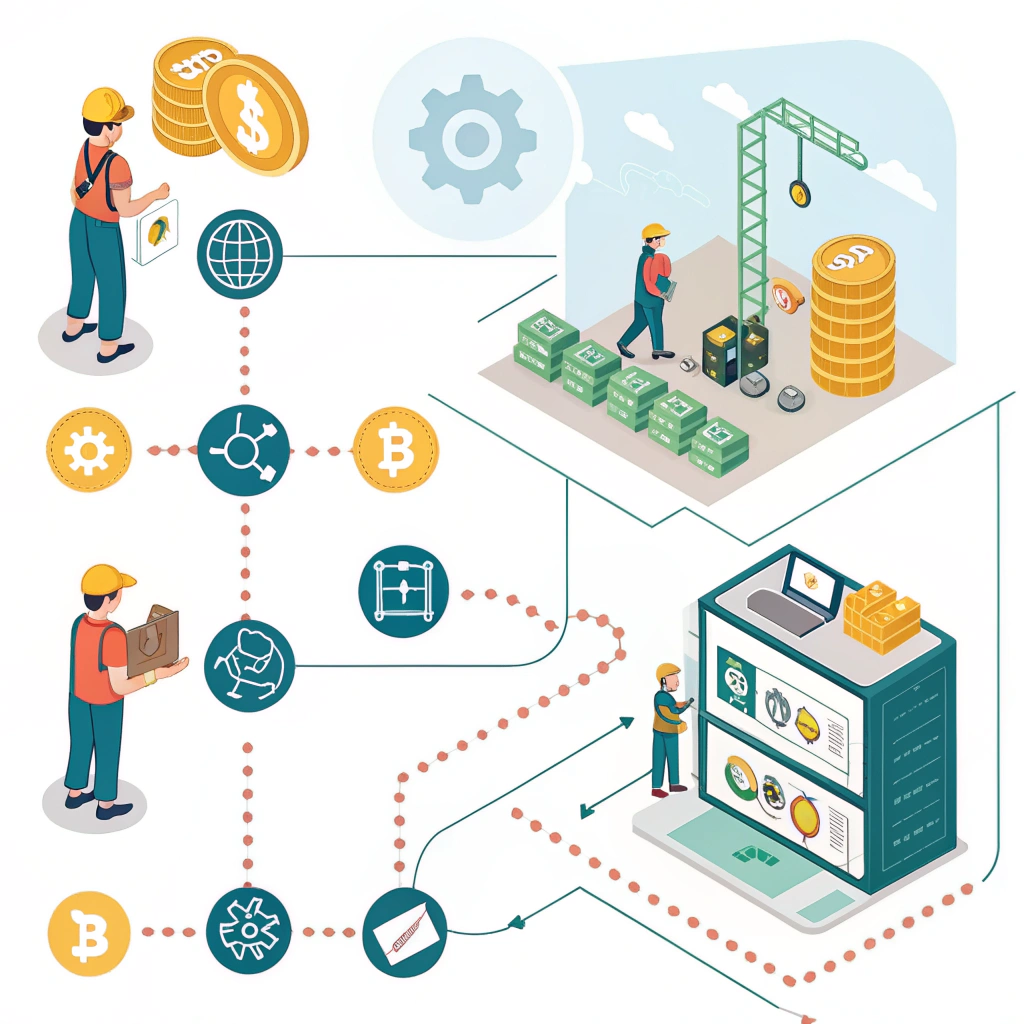
Introduction
Crypto mining is one of the foundations of blockchain — but what exactly is it? If you’ve ever wondered how new Bitcoin is created or how blockchain stays secure, this 2025 guide will explain mining in simple terms and whether it still makes sense today.
What Is Crypto Mining?
Crypto mining is the process of verifying blockchain transactions and adding them to the public ledger (the blockchain). In return, miners earn newly created coins and transaction fees.
In mining, you’re essentially competing to solve puzzles that keep the blockchain running.
Why Mining Is Necessary
Mining:
Confirms and secures transactions
Prevents double spending
Adds new blocks to the blockchain
Releases new coins into circulation (in PoW systems)
Without miners, blockchains like Bitcoin wouldn’t function or stay secure.
How Proof of Work (PoW) Mining Works
A group of transactions waits to be added to the blockchain
Miners compete to solve a complex mathematical problem
First to solve it broadcasts the block to the network
Other nodes verify it → block is added to the chain
The winning miner gets a block reward (e.g., BTC)
This system is called Proof of Work, used by Bitcoin and other coins.
Mining Equipment and Software
🔧 Hardware
ASICs (Application-Specific Integrated Circuits): Custom-built for mining (e.g., Antminer)
GPUs (Graphics Processing Units): Still used for some altcoins (e.g., Ergo, Kaspa)
CPUs: Rarely used now — too slow
💻 Software
CGMiner, NiceHash, PhoenixMiner
Mining OS: HiveOS, RaveOS
Wallets to receive mined coins
Mining requires high-performance hardware, stable electricity, and internet connection.
Mining Rewards and Incentives
Miners are rewarded with:
Block rewards: New coins minted per block
Transaction fees: Paid by users to speed up confirmation
Bitcoin’s block reward halves every ~4 years (halving). In 2025, the reward is 3.125 BTC per block.
Popular Coins You Can Still Mine in 2025
Coin Algorithm Notes
Bitcoin (BTC) SHA-256 Requires ASICs
Litecoin (LTC) Scrypt ASIC-minable, fast block times
Kaspa (KAS) kHeavyHash GPU-friendly, growing community
Monero (XMR) RandomX CPU/GPU mining, privacy-focused
Dogecoin (DOGE) Merged with LTC Can be mined alongside Litecoin
Solo Mining vs. Mining Pools
Type Description Pros Cons
Solo Mining Mine independently Keep all rewards Rarely find a block
Mining Pool Join others and split rewards More consistent payouts Pay a small pool fee
In 2025, most miners use pools to reduce risk and earn steady income.
Is Mining Still Profitable in 2025?
It depends. Profitability factors include:
Electricity costs
Hardware efficiency
Coin price and network difficulty
Pool fees and maintenance
High electricity bills can kill profits. Countries with cheap, renewable energy are top spots for miners.
Use tools like WhatToMine to calculate real-time earnings.
Environmental Impact and Green Alternatives
Traditional PoW mining has been criticized for energy use.
Eco-friendly mining options:
Hydro, solar, and wind-powered farms
Carbon-neutral mining pools
Proof of Stake (PoS) replacing mining in many projects
Merged mining (e.g., DOGE+LTC) reduces waste
Bitcoin is now estimated to be over 50% powered by clean energy.
Risks and Challenges of Mining
Hardware failure and wear
Price crashes reducing profits
Regulatory bans in some regions
Network difficulty spikes
Initial investment is high ($1,000–$10,000+)
Mining is not passive income — it’s a full business operation.
FAQ
Can I mine on my phone or laptop?
Not effectively. It’s inefficient and can damage your device.
Is mining legal in 2025?
Depends on your country. Always check local laws.
What happens when all Bitcoin is mined?
Miners will earn only transaction fees — this will happen around 2140.
Can I start mining with no experience?
Yes, but you should learn the basics, join a pool, and start small.
Conclusion
Crypto mining is still alive in 2025 — but it’s more competitive, professional, and energy-conscious than ever. Whether you’re interested in Bitcoin or smaller altcoins, success depends on your knowledge, equipment, and power costs. Do your research, plan wisely, and start small if you’re just getting in.
